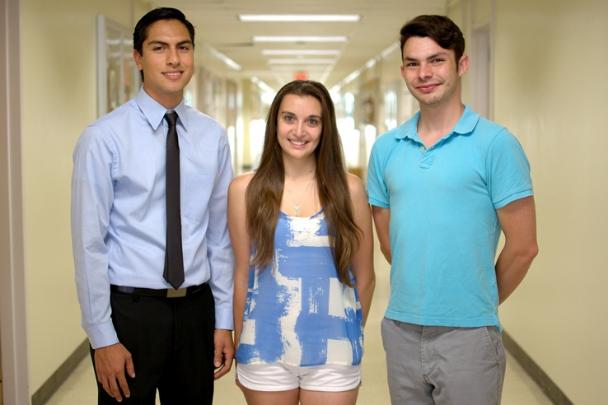
The Robert Noyce Scholarship Program, which gives grants to train gifted college math and science students to teach in under-served school districts, has awarded $1.2 million to Loyola Marymount University.
The five-year, National Science Foundation grant will fund the “Lions Roar: LMU Noyce Scholarship Program.” The program recruits students with an aptitude and passion for math and science to teach in high-need districts through $20,000 scholarships and paid summer internships.
The Noyce Scholars will take part in teacher-training classes and a mentor network that will begin at LMU and continue through their early careers in the classroom. The strength of the LMU program “lies in its concerted effort to provide math and science majors with early teaching experience and to validate teaching as a career choice,” said Carolyn Viviano, director of the Noyce program at LMU.
Viviano, an associate professor of biology at the Frank R. Seaver College of Science and Engineering, is the lead investigator for the grant project. Faculty and staff members at LMU’s School of Education and Bellarmine College of Liberal Arts will also participate.
The NSF program is part of the federal Robert Noyce Teacher Scholarship Program, authorized under the America COMPETES Reauthorization Act of 2010. The act responds to the critical need for K-12 teachers of science, technology, engineering and mathematics (STEM).
The Noyce program at LMU will provide the stipends to juniors and seniors, while doing outreach to recruit able freshmen and sophomores. The program will serve dozens of students, offering $3,000 summer internships to 40 students, as well as 36 annual $20,000 scholarships. The first awards will be made next year.
“What makes our grant proposal so attractive is that we raise the profile of teaching as a career for scientists,” said Viviano. “In addition, our support network has been designed to increase the number of math and science faculty who work directly with these future educators on issues related to K-12 teaching.”
Scholarship and stipend recipients are required to complete two years of teaching in a high-need school district for each year of support.



